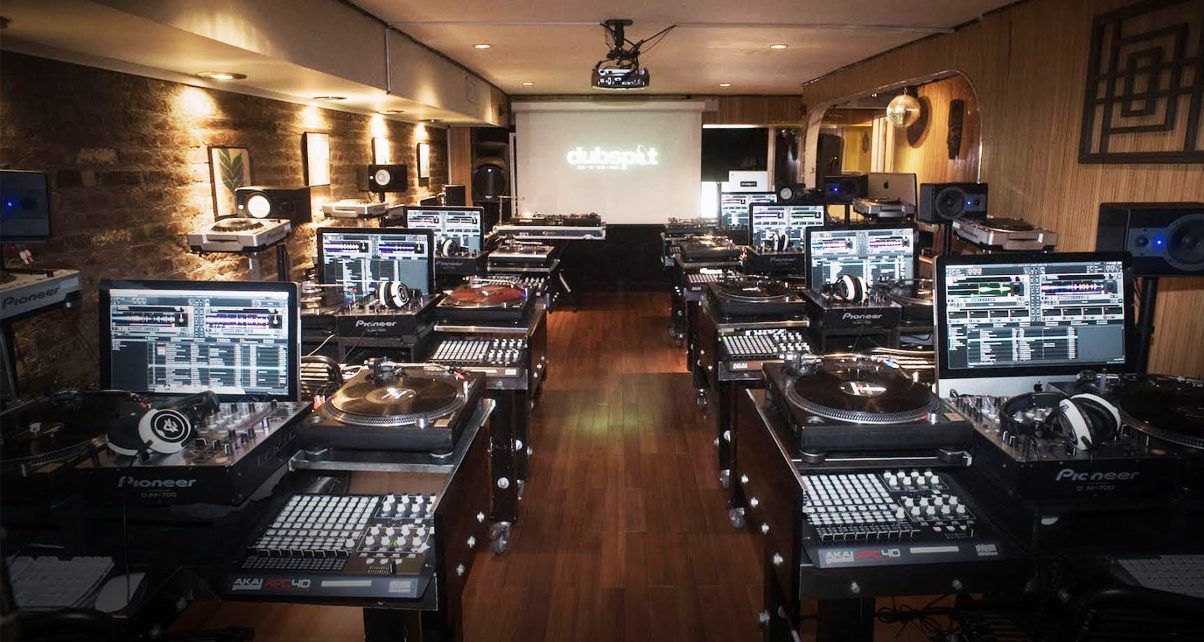
This past week, Dubspot, a well-known DJ and music production school, was accused of fraud for not giving DJ tuition to students who had already paid their fees – and in some cases allegedly not even offering a refund. Apparently, this had been going on for a while, with instructors refusing to conduct sessions because they were not being paid by Dubspot.
Folk took to forums and blog sites to decry the situation, and in the spate of reactions that followed, some wondered: Is it even necessary to go to a DJ school when you can learn by yourself, whether by messing around on your own or watching videos online? In fact, with so much free content available, why even bother paying for DJ training when you can just go on YouTube and not have to pay a single dime to learn both basic and advanced techniques?
These are all weighty questions, and as we are, of course, a company that prides itself in providing helpful, practical, and high-value DJ and music production tuition (both free and paid-for), we wanted to add our voice to the conversation.
Is paid-for DJ training worth it?

DJ training is not crucial for someone who wants to take up DJing, but for certain types of people, it is preferable – and for absolutely anyone, it will always markedly speed up the learning process.
Of course you can learn on your own through trial and error or having a mate show you how, but that isn’t a substitute for having a solid, structured programme created by an experienced school to guide you through the skills in the right way. It lets you learn how to DJ without having to piece together training material from different sources of varying quality and authority, or relying on one person’s way of doing things.
As with any art form, there are many different ways to go about DJing, and at times you may even find the teachings of well-intentioned friends or inexperienced tutors contradicting with your growing understanding. Of course, this can lead to confusion and frustration.
That’s why it’s important to be discerning with where you get your training from. Going with the right training resource could potentially save you years of time and effort, thousands of dollars, and worse, having to reassess what you’ve learned as your understanding grows.
More importantly, you are allowing yourself to start off on the right foot. We’ve heard too many stories of DJ students who were left frustrated with DJing and disappointed with themselves simply because they weren’t being taught properly by someone who understood what it was like to be a beginner.
So while things appear to be going south for Dubspot (although we sincerely hope they turn it around – after all, respected DJs and tutors Endo and Shiftee are former trainers there), Dubspot failed from a business / financial standpoint, not an educational one – this is an important distinction.
What is important when choosing training, though, is deciding the level of support you think you need.
For beginners who just want the basics, flexible training that lets them hit the ground running (as offered in our Foundation Courses, for example) is often all they need; the same for DJs wanting to focus in on one specific skill (there are many examples of such skills in our range of Deep Dive Courses).
But for people who are serious about hitting “pro” standard and who are prepared to commit a bit more, feedback and coaching become essential extra elements – which is why we also have more in-depth, annual Academy Courses. the extra effort required to complete such training can take beginners to pro level in amazingly short periods of time.
Online or offline?
Of course, in our case our teaching is all online, which we actually think is the best way for the vast majority of people to learn. You can take the training any time you want, anywhere you want – but with webinars, tutor feedback and community help available for those who need it, you get all the advantages of going to a physical DJ school minus a lot of the hassle and cost. Our methods also make DJ training available to people who don’t live near a reputable DJ school – which is almost everyone!
(Since 2010, we’ve grown to be the biggest online DJ training school in the world, so we know a thing or two about how to get amazing outcomes for our 16,000 students…)
Finally…
So back to answer the question: is paid DJ training worth it?
If you want to learn quickly, yes. Schools and training methods may come and go, but the need to learn from someone who knows what to teach and how to teach it will always remain central to learning to DJ, just with any craft. You’re paying for the years of blood, sweat and tears that your tutors had to go through to get to where they’re at.
Otto Von Bismarck said it best: “Only a fool learns from his own mistakes. The wise man learns from the mistakes of others.”
• Want to win a scholarship with Digital DJ Tips worth over $6000? Click here to find out how you can enter our free prize draw.
How did you learn how to DJ? Did you take online / offline lessons, or did you do it on your own? Was a more experienced DJ kind enough to mentor you? Share your experiences and thoughts below.








